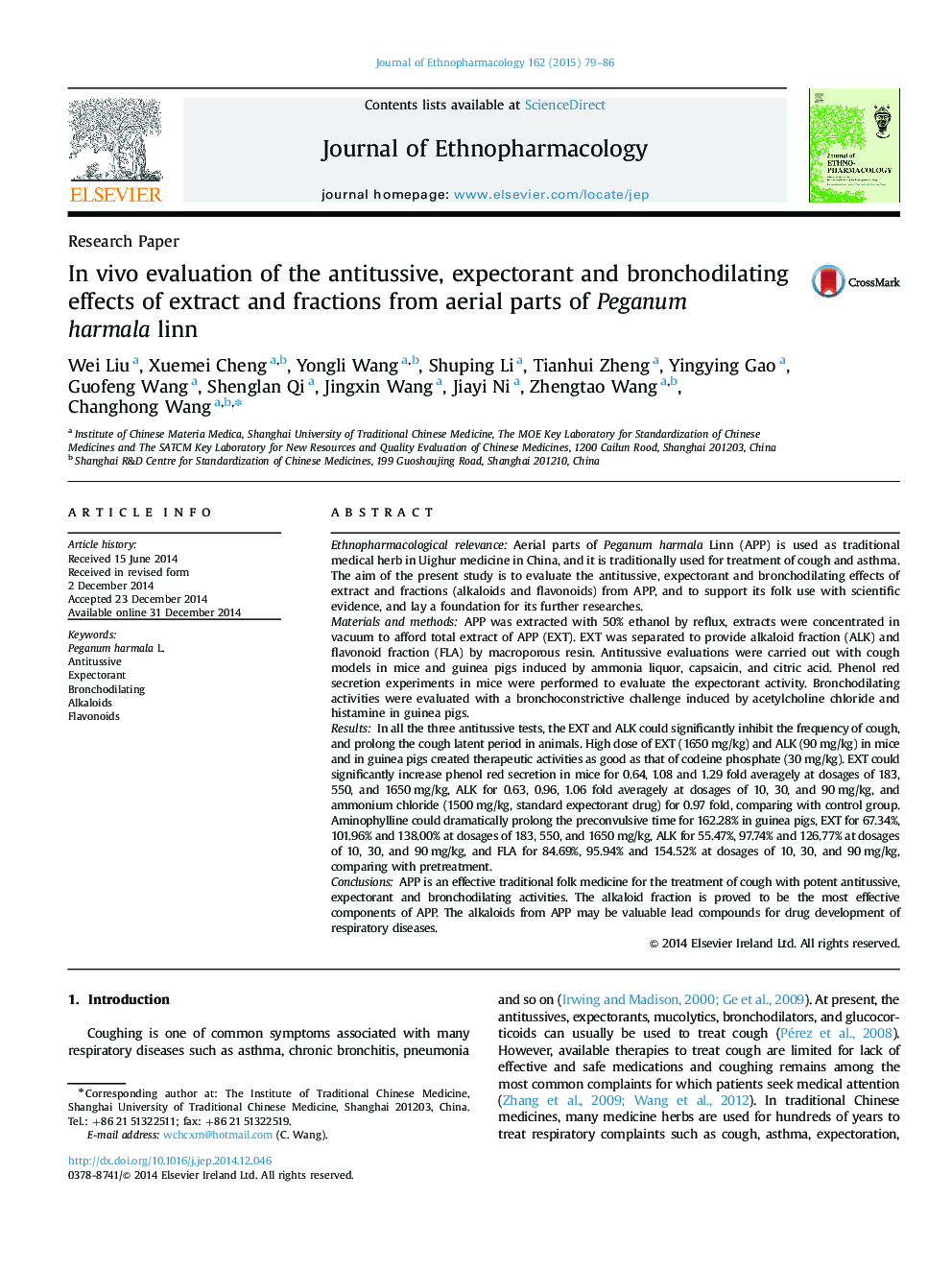| کد مقاله | کد نشریه | سال انتشار | مقاله انگلیسی | نسخه تمام متن |
|---|---|---|---|---|
| 5835410 | 1560400 | 2015 | 8 صفحه PDF | دانلود رایگان |
Ethnopharmacological relevanceAerial parts of Peganum harmala Linn (APP) is used as traditional medical herb in Uighur medicine in China, and it is traditionally used for treatment of cough and asthma.The aim of the present study is to evaluate the antitussive, expectorant and bronchodilating effects of extract and fractions (alkaloids and flavonoids) from APP, and to support its folk use with scientific evidence, and lay a foundation for its further researches.Materials and methodsAPP was extracted with 50% ethanol by reflux, extracts were concentrated in vacuum to afford total extract of APP (EXT). EXT was separated to provide alkaloid fraction (ALK) and flavonoid fraction (FLA) by macroporous resin. Antitussive evaluations were carried out with cough models in mice and guinea pigs induced by ammonia liquor, capsaicin, and citric acid. Phenol red secretion experiments in mice were performed to evaluate the expectorant activity. Bronchodilating activities were evaluated with a bronchoconstrictive challenge induced by acetylcholine chloride and histamine in guinea pigs.ResultsIn all the three antitussive tests, the EXT and ALK could significantly inhibit the frequency of cough, and prolong the cough latent period in animals. High dose of EXT (1650Â mg/kg) and ALK (90Â mg/kg) in mice and in guinea pigs created therapeutic activities as good as that of codeine phosphate (30Â mg/kg). EXT could significantly increase phenol red secretion in mice for 0.64, 1.08 and 1.29 fold averagely at dosages of 183, 550, and 1650Â mg/kg, ALK for 0.63, 0.96, 1.06 fold averagely at dosages of 10, 30, and 90Â mg/kg, and ammonium chloride (1500Â mg/kg, standard expectorant drug) for 0.97 fold, comparing with control group. Aminophylline could dramatically prolong the preconvulsive time for 162.28% in guinea pigs, EXT for 67.34%, 101.96% and 138.00% at dosages of 183, 550, and 1650Â mg/kg, ALK for 55.47%, 97.74% and 126.77% at dosages of 10, 30, and 90Â mg/kg, and FLA for 84.69%, 95.94% and 154.52% at dosages of 10, 30, and 90Â mg/kg, comparing with pretreatment.ConclusionsAPP is an effective traditional folk medicine for the treatment of cough with potent antitussive, expectorant and bronchodilating activities. The alkaloid fraction is proved to be the most effective components of APP. The alkaloids from APP may be valuable lead compounds for drug development of respiratory diseases.
325
Journal: Journal of Ethnopharmacology - Volume 162, 13 March 2015, Pages 79-86
